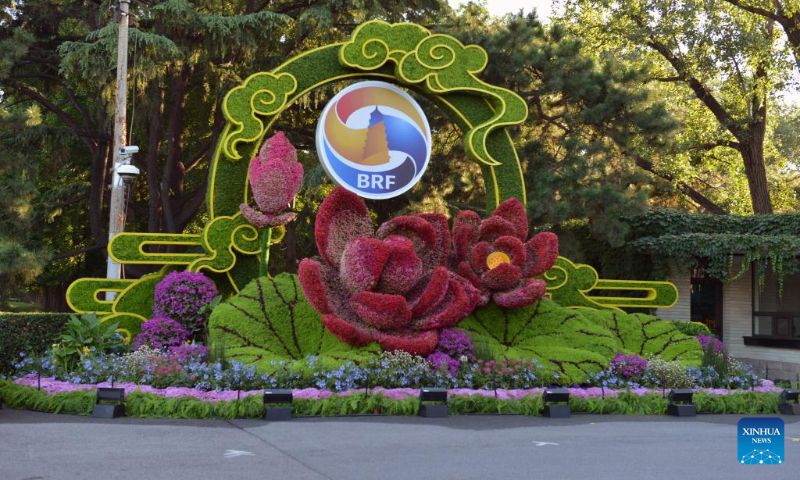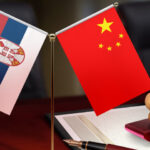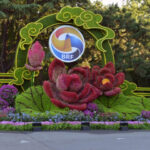Chinese President Xi Jinping met with world leaders who came for the third Belt and Road Forum for International Cooperation (BRF) in Beijing on Tuesday, and more and more heads of state, government leaders and officials, as well as leaders of international organizations have arrived in China’s capital city, making the BRF the most attractive and anticipated international event at the moment.
Chinese analysts said that by actively participating in the China-proposed Belt and Road Initiative (BRI), members of international community are giving their vote of confidence to China’s economic strength, political influence and credibility to guide global recovery and help the world to overcome its challenges.
On Tuesday, Xi met with leaders including Indonesian President Joko Widodo, Kazakh President Kassym-Jomart Tokayev, Hungarian Prime Minister Viktor Orban, Chilean President Gabriel Boric, Serbian President Aleksandar Vucic, Uzbek President Shavkat Mirziyoyev, Ethiopian Prime Minister Abiy Ahmed and Papua New Guinean Prime Minister James Marape.
And on the same day, more and more leaders from different countries and international organizations arrived, including Russian President Vladimir Putin, UN Secretary-General António Guterres, Argentine President Alberto Fernandez, Vietnamese President Vo Van Thuong, President of Mongolia Ukhnaa Khurelsukh and Prime Minister of Mozambique Adriano Maleiane.
Leaders of other countries including Pakistan’s Prime Minister Anwar-ul-Haq Kakar, Thai Prime Minister Srettha Thavisin, Kenyan President William Ruto, Cambodian Prime Minister Hun Manet, Lao President Thongloun Sisoulith, Sri Lankan President Ranil Wickremesinghe and President of the Republic of the Congo Denis Sassou Nguesso have arrived, and some of them had meetings with Chinese leaders.
Apart from incumbent leaders, many former leaders and non-governmental figures also came for the BRF this year, including a delegation of French experts on the BRI who also arrived in Beijing and met with Chinese senior officials.
China’s reputation
Li Haidong, a professor at the China Foreign Affairs University, told the Global Times on Tuesday that the active participation of the international community makes the BRF a spectacular event, and this just proves that China is a major power with significant international influence which is also well-respected around the globe. The BRI is a popular public good that China has contributed to the world, and the initiative has now become even more important and influential, he added.
During the talks with the Chinese president, the foreign leaders all mentioned the achievements that they had created with China under the framework of the BRI in the past decade, and they all appreciated China’s contribution and help to their countries’ development, reported the Xinhua News Agency. They expressed confidence and firm support to China and the China-proposed BRI, and hoped that the initiative can bring changes to the world and benefit more people.
They also opposed the act of “decoupling” and the so-called de-risking that aims at containing China and serving hegemonic purpose, and some of them who are deeply concerned about the ongoing hotspot issues like the Ukraine crisis and the Palestinian-Israeli conflict also vowed to maintain communication and coordination with China to promote political settlement and mediation.
“In order to correctly understand the nature of the BRI, we must first recognize that the members of the Global South, or the developing countries, are the main participants, representing the future growth pole of the world market. The BRI is in line with the trend of overall rise among the Global South,” Huang Renwei, executive director-general of the Fudan Institute for Belt and Road and Global Governance, told the Global Times on Tuesday.
Therefore, the negative attitudes of the US and some of its followers in the West are not that important, and their isolation against China or the BRI will eventually make themselves isolated, experts said.
The BRI provides the economic foundation for the Global South, connecting related countries and forming new and bigger markets, Huang said. “Some countries want to cut China off from the Global South, but the fact is that countries in the South will not ‘decouple’ from China, but will cooperate more closely with China,” he noted.
Voices from Global South
Countries of the Global South are the main participants, as well as the ones who have mainly benefited from the BRI, and the guests from the Global South that came for the BRF in Beijing reached by the Global Times have expressed their full confidence and high expectations on the BRI.
Muhammad Zamir Assadi, a research fellow on diplomacy and a media fellow of the China-South Asia and South East Asia Press Centre, told the Global Times on Tuesday that “The forum is of great significance as dozens of international leaders have come to China to attend it and it also delivers a message to the international community that the high-quality developments achieved under the BRI for the past decade are remarkable and satisfactory. It also shows us that win-win cooperation with the mutual consultation is gaining beneficial results for all.”
“The China-Pakistan Economic Corridor was announced as a flagship project of the BRI, and it has shown the tangible results. The investment on the project has also helped boost various sectors in Pakistan,” said Assadi. He also expected to see more exchanges on education and medical fields between China and Pakistan.
“Pakistan has so much confidence on the BRI and such confidence would not be affected by any other situation. The confidence will always be there as the BRI has done a great job in transforming various sectors in Pakistan, and we believe that the BRI will bring long-lasting and more tangible results to the world,” said the Pakistani expert.
Yahya Nawanda, the Regional Commissioner of Simiyu in Tanzania, told the Global Times that “We have so many projects in Tanzania which were built by Chinese companies and the most influential one which every Tanzanian knows is the Tanzania-Zambia railway project.”
“We also want to connect with other countries like Rwanda and Burundi,” Nawanda said. “We need to take back home everything we are studying and witnessing here in China, so that we can help our people and our nations.”
Gan Tiam Loo, vice president for Association of Interaction Malaysia-China, told the Global Times on Tuesday that “A connection of hearts between people of different cultures has always been significant in a successful operation of the BRI. With the proposal of the initiative, the local society in Malaysia has shown a welcoming and supportive attitude to the initiative. This can be seen from the active participation of state leaders and the general public in studying and exchanging with China.”
“I hope in the future the BRI can continue to share the ‘Chinese solution’ and ‘Chinese wisdom’ with other countries, and through this new form of international cooperation, regional peace can be maintained and quick development achieved. I hope the people of the world turn their pursuit of a better life into reality within the community of shared future, and achieve a world of great harmony with the BRI,” said Gan.
(Global Times)




